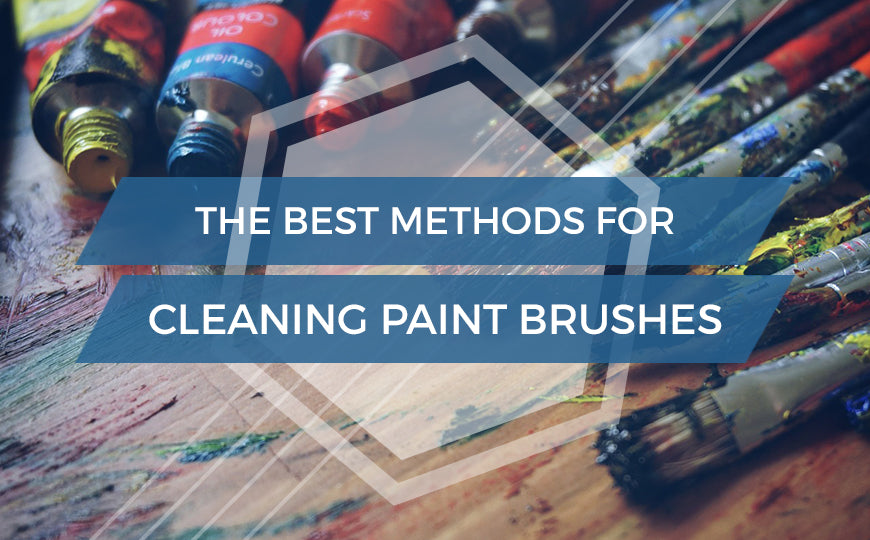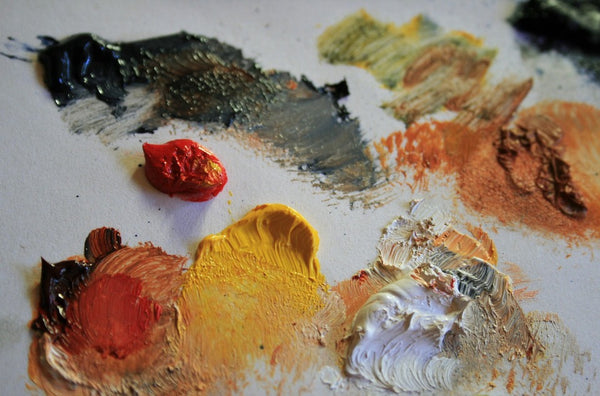Methods for Cleaning Paint Brushes

Did you know that keeping your paint brushes clean and well-maintained can significantly prolong its lifespan? Cleaning paint brushes require time and effort. Fortunately, there are very simple and efficient ways to do this! Check out these tried and tested brush cleaning methods below.
Cleaning paint brushes according to medium
To care for your brushes, you will first need to determine the type of paint you’re using and adjust your cleaning method to your chosen medium. Don’t forget that it is generally recommended to use different sets of brushes for different types of paint. That being said, the technique for cleaning acrylic brushes and watercolor brushes differs from cleaning oil paint from brushes because they have different compositions.
How to Clean Acrylic Paint Brushes
Acrylic paints are water-based paints known for their quick-drying properties. Because of this feature, you should avoid letting the paint dry on your bristles as this will surely ruin your brushes. Remember that the longer you let the paint dry on the brushes, the harder it will be to remove acrylic paint from your brushes.
If you want to know how to clean acrylic paint brushes effectively, just follow the steps below:
- Wipe the paint off of your paint brush with a lint-free rag or paper towel to remove acrylic paint off the bristles.
- Next, rinse your brush under running cold water.
- Gently rub the bristles from the tip to the ferrule to squeeze out the paint stuck in the bottom of the brush.
- Continue to rinse the brush until the water becomes clear.
- To make sure that there is no paint left on the brushes, wash the brushes with mild soap or a brush cleaner. Rinse off the soap.
- Wipe dry or blot with a clean paper towel. Repeat the process if there are traces of paint still left on the brush.
- Let your brushes air dry in room temperature in an upright position, making sure they do not come in contact with any surface.
How to Clean Oil Paint Brushes
Cleaning oil paint from brushes requires the use of solvents and a few other cleaning tools. You’ll need paint thinner or turpentine (you can use White Spirit or Brush Cleaner), old rags or paper towels, a container, mild soap, newspapers, and rubber gloves for protection.
- Put on your gloves and place some newspaper on the surface you’re working on.
- Get an old rag or paper towel and remove excess paint from the brush by squeezing from the bottom of the bristles (just above the ferrule) to the tip of the brush. Do this repeatedly until much of the paint has been removed.
- Place White Spirit inside your container and dip your brushes in the container. Try to rub the brush across the bottom of your container to loosen the paints. Repeat until the brushes are clean.
- After the oil paint has been removed, wash the brushes in warm water and soap until the brushes lather.
- Rinse the brushes until the water runs clear of any color and soap.
- Wipe the brushes dry and let it air dry in room temperature in an upright position.

How to Clean Watercolor Brushes
Though cleaning watercolor brushes is a lot common to cleaning acrylic brushes as they are both water-based paints, watercolor brushes are the easiest to clean:
- Rinse your watercolor brushes under running water.
- Work some mild soap into the bristles and swirl the soapy brush into the palm of your hand to lather.
- Rinse and repeat until the soapsuds turn white.
- Wash off the soap from the brushes.
- Use a towel to dry your brush and gently squeeze out the water from the bristles.
- Let your brushes air dry in room temperature in an upright position, making sure they do not come in contact with any surface.
Remember that cleaning paint brushes is a must. Follow all the steps above to make the most out of your paint brushes and keep them usable for a very long time!
Do you have your own technique for cleaning your brushes? Let us know by leaving a comment below!
